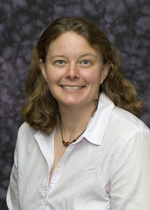
Computer Vision for Engineering Applications
Shirley Dyke
Professor of Mechanical Engineering and Civil Engineering
Lyles School of Civil Engineering, Purdue University, U.S.A.
Abstract: Recent advances in computer vision are enabling autonomous evaluation of civil engineering structures. Low-cost, high performance cameras, used in conjunction with aerial or embedded sensing platforms, are breaking down the spatial and temporal challenges previously associated with visual sensing. Well-established computer vision algorithms provide efficient and rapid analysis of the visual data collected. However, beyond simply processing these images, aiming to replicate the actions and abilities of human vision is needed to inform decision-making. Computer vision techniques, such as image processing, object detection, or multi-view geometry, are increasingly being implemented for a broad range of engineering applications. This talk will discuss the novel use of computer vision methods to address two promising needs in civil engineering. High-level image processing and analysis, when integrated with prior knowledge of general damage features, provides reliable capabilities supporting visual inspection. Next, repurposing of object detection techniques that originate from computer vision methods is also shown to effectively address vehicle classification.
Bio: Shirley J. Dyke is a professor of mechanical engineering and a professor of civil engineering at Purdue University. She received her B.S. in Aeronautical and Astronautical Engineering from the University of Illinois, Champaign-Urbana and her Ph.D. degree in Civil Engineering from the University of Notre Dame in 1996. Dr. Dyke was awarded the Presidential Early Career Award for Scientists and Engineers, the Short-term Invitation Fellowship from the Japan Society for the Promotion of Science, the International Association on Structural Safety and Reliability Junior Research Award and the ANCRiSST Young Investigator Award. She was the Edward C. Dicke Professor of Engineering at Washington University in St. Louis until 2009. Dr. Dyke’s research efforts have addressed a variety of issues related to the development and implementation of “smart” structures, including innovative control technologies, structural health monitoring and real-time hybrid simulation methods. Dr. Dyke also directs the Intelligent Infrastructure Systems Lab at Purdue's Bowen Lab and is currently a co-leader for Information Technology for the NSF-funded Network for Earthquake Engineering Simulation (NEES).
Back to Speakers